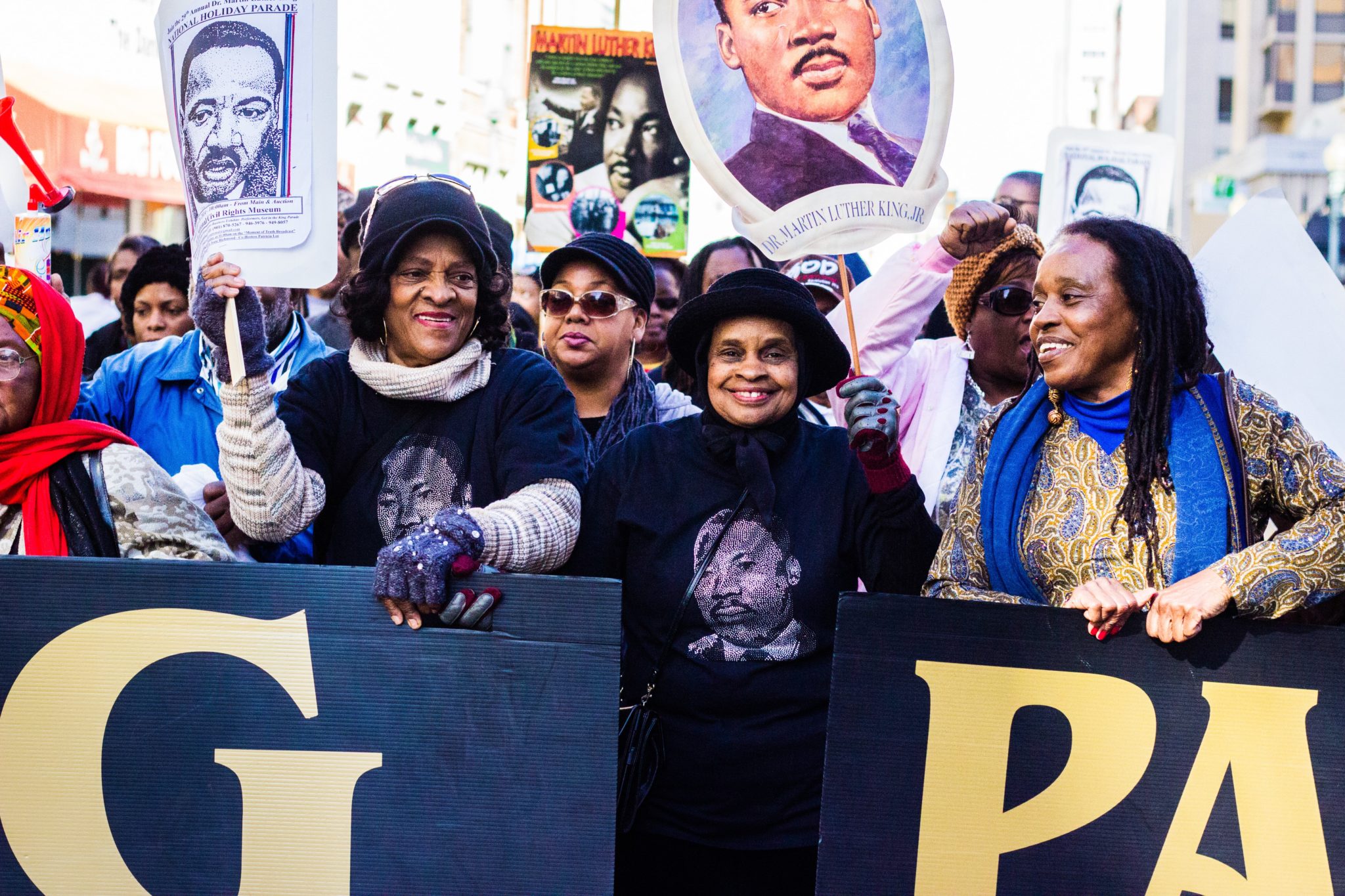“I don’t feel comfortable ignoring this day but I don’t know how to honor it and remember Martin Luther King Jr. well.”
This is something I have heard many of my white friends and colleagues say to me, regarding the Martin Luther King Jr. holiday. And interestingly, I agree. I, too, find myself wondering how we all can better reflect on the work and legacy of Dr. King. Beyond pithy Instagram quotes, more often than not taken out of context, it is hard to remember the central vision of Dr. King, and it is also extremely difficult to know what it means to stand in solidarity and to work with one another toward the pursuit of justice.
I’m not a big fan of rules, but I think creating a framework for understanding the work of Dr. King, as well as those who continue to fight for freedom and reconciliation, allows me to better engage this holiday and the days that follow. It’s important to mention that I don’t speak for all Black people, but I find that there are three principles I hold to as I learn to remember Dr. King’s legacy with courage and hope, no matter the time of year.
1. Resist the urge to reduce Martin Luther King Jr. and other civil rights leaders to tokens or badges.
For many people, Martin Luther King Jr. Day is an opportunity to reflect on the state of racial unity and reconciliation today. Most of us can easily acknowledge that Dr. King’s leadership and justice ministry changed the course of history for many people in North America. With prophetic courage, he shared with white Christians a Scriptural vision of equality, justice, and human dignity. His fierce advocacy of these convictions—and the pursuit of his famous dream—cost him his life.
It is curious, then, that we often fail to recognize Dr. King as a complex human being. His life was fraught with danger, disillusionment, and disappointment. He experienced challenges to his body, mind, and soul. If we are to truly see the legacy of Dr. King, we must then work to remember him as a whole human, not just by his top ten quotes. In doing so, we are able to better bear witness to his remarkable life.
- Action step: watch “King in the Wilderness,” a powerful tribute that covers the final years of Dr. King’s life, as told by his friends. Available on multiple streaming platforms.
2. Be cognizant of the vibrant philosophy of the Civil Rights Movement and Dr. King’s vision for us today.
The philosophy behind the Civil Rights Movement of the 1950s and 1960s was to use legal and non-violent means to bring full citizenship and equal rights to Black people; this included breaking down social and political barriers. That philosophy applies, too, to today’s ongoing movement toward continued civil rights for all people. There is ongoing work toward justice and reconciliation. We continue to move from a struggle for decency to a struggle for human flourishing. This means that our activism and imagination must be rooted in consistent action and the actual building up of grassroots movements and embodied liberation for all.
For me, honoring the work of our civil rights leaders while holding to the reality of today looks like this:
- Learn where we have been. Study the lessons history continues to teach us.
- Lament how far we have yet to go. Scripture has language for this. Wrestle with the already-but-not-yet place we are in. This lament toolkit might help you do this well.
- Celebrate the ways we have made steps forward for the collective freedom of all people.
- Participate in transformative justice work. Move your body; risk your life for the oppressed. This can be as simple as voting for people who truly pursue justice.
- Action step: read “A Call to Justice and Mercy,” a sermon by Rev. Dr. Patricia A. Sealy, based on Zechariah 7:1-14. Read aloud the names of the 26 unarmed Black men, killed by police or white men between 1997 and 2020, then follow the convictions you experience as you lament and learn about biblical injustice and what it means to “love mercy.”
3. Recognize that our fight for reconciliation is deeply rooted in Scripture, and therefore must be understood through the unfolding narratives of our lives.
While the Civil Rights Movement of Dr. King’s day was a politically strategic one, we know that at its heart, it was also an ecclesial movement. King was a pastor, and the Civil Rights Movement was set on the foundation of Christian clergy and laity. As folks marched for rights and freedom, they were praying and singing, and their message remained biblical. They made a clear choice to peacefully fight for the freedom of those Christ loved. Loving Christ means loving all those he loves.
Related: Is Racism a Discipleship Issue? Joe Graham, a White Millennial Pastor, Thinks So.
Regardless of our backgrounds, Dr. King’s life and legacy is an opportunity for us to continue to interrogate our own past and our future as we seek to participate in a life of justice and biblical reconciliation. It is within these very realities we are working to make God’s kingship present in our daily lives.
- Action step: Listen to Dr. King’s “Letter from a Birmingham Jail.” This letter hints at what gave the Black community hope during hopeless times and reveals the impetus behind Dr. King’s work. It remains a letter of deep meaning and encouragement for freedom fighters today. Like the apostle Paul and Dr. King, may we be “compelled to carry the gospel of freedom” and “constantly respond to the Macedonian call for aid.”
- Action step: Listen to this podcast episode with Dr. Gregory Thompson, executive director of Voices Underground, an initiative to build a national memorial to the Underground Railroad in Pennsylvania. Dr. Thompson discusses storytelling, Scripture, and reparations in this episode. (His PhD dissertation was on Martin Luther King Jr., and he is currently working on a book that explores the role of love in Dr. King’s work, so stay tuned to this pastor, scholar, and writer!)
There is no singular way to remember Dr. King’s legacy, but we must press into the reality that the work is communal, intentional transformation over a sustained period of time. What will we do to continue to embody justice in our everyday lives? What will we do to address and change narratives, systems, structures, and policies that limit equity? What cost are we willing to pay so that all children of God may flourish? I don’t have a straightforward answer to all these questions, but my hope is that our actions, like Dr. King’s, will be rooted in biblical love, courageous hope, and liberating imagination for all people.

Ruth Langkamp
Ruth Langkamp serves the Reformed Church in America as next generation program specialist. You can connect with Ruth at rlangkamp@rca.org.



